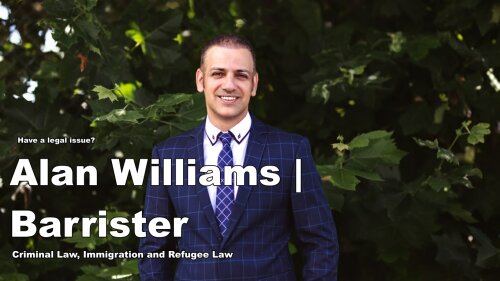Best White Collar Crime Lawyers in Auckland
Share your needs with us, get contacted by law firms.
Free. Takes 2 min.
List of the best lawyers in Auckland, New Zealand
About White Collar Crime Law in Auckland, New Zealand
White collar crime refers to non-violent crimes typically committed in commercial contexts by individuals or organizations that aim to achieve financial gain. These crimes encompass a wide range of fraudulent acts, including theft, cybercrime, tax evasion, insider trading, money laundering, and more. In Auckland, New Zealand, white collar crimes are given quite serious attention, both by the regulatory authorities and the general public due to their detrimental effects on the economy and public trust.
Why You May Need a Lawyer
Engaging a lawyer is advisable if you've been charged with a white collar crime, are suspected of committing one, or if you've fallen victim to one. Lawyers specialized in white collar crimes can help navigate the complex and often intricate laws surrounding these offenses. A skilled attorney brings experience in dealing with investigations, prosecuting authorities, and the court system. They can provide guidance, form a defence, negotiate plea bargains, or aim to reduce potential penalties.
Local Laws Overview
Local laws related to white collar crime in Auckland are enforced through rigorous regulatory mechanisms established by the New Zealand government. The Crimes Act 1961 and the Financial Markets Conduct Act 2013 are pivotal legislative pieces that cover different types of white collar crimes. The Serious Fraud Office (SFO) is the main regulatory body dealing with these crimes at a high level; they have broad powers to investigate and prosecute.
Frequently Asked Questions
What is considered a white collar crime?
A white collar crime is a non-violent act involving deceit, typically committed by a business or government professional. Events like embezzlement, tax evasion, money laundering, and insider trading are common examples.
What are the penalties for white collar crimes in Auckland?
The penalties for white collar crimes in Auckland can be severe, including hefty fines, imprisonment, or both. It varies based on the crime's nature, the amount involved, or any prior criminal records.
How does the SFO decide whether to investigate a claim?
The SFO pursues investigations on the basis of evidence and takes into account factors such as the seriousness and complexity of the matter, public interest, and the potential harm to the New Zealand’s financial markets.
Can a lawyer help form a defence against a white collar crime charge?
Yes, a lawyer experienced in white collar crime can potentially build a strong defence against charges by challenging the evidence's validly or legality, or reducing potential penalties through negotiating a plea bargain.
Does white collar crimes have a statute of limitations in Auckland?
White collar crimes do not have a specific statute of limitations in New Zealand. Prosecution can be initiated anytime after the commission of the offence, depending on the nature of the crime.
Additional Resources
The Serious Fraud Office (SFO) and the Financial Markets Authority (FMA) are key government bodies dealing with white collar crimes. Citizens Advice Bureau (CAB) can also provide general guidance and direction. Law Society of New Zealand offers a Lawyer Search feature that may be helpful.
Next Steps
If you require legal assistance with a white collar crime matter, it is advised to immediately seek counsel from a lawyer specializing in white collar crime. Collect all relevant documents and information about your case to facilitate a thorough evaluation. Be honest and open with your counsel to ensure the best possible defence or legal advice.
Lawzana helps you find the best lawyers and law firms in Auckland through a curated and pre-screened list of qualified legal professionals. Our platform offers rankings and detailed profiles of attorneys and law firms, allowing you to compare based on practice areas, including White Collar Crime, experience, and client feedback.
Each profile includes a description of the firm's areas of practice, client reviews, team members and partners, year of establishment, spoken languages, office locations, contact information, social media presence, and any published articles or resources. Most firms on our platform speak English and are experienced in both local and international legal matters.
Get a quote from top-rated law firms in Auckland, New Zealand — quickly, securely, and without unnecessary hassle.
Disclaimer:
The information provided on this page is for general informational purposes only and does not constitute legal advice. While we strive to ensure the accuracy and relevance of the content, legal information may change over time, and interpretations of the law can vary. You should always consult with a qualified legal professional for advice specific to your situation.
We disclaim all liability for actions taken or not taken based on the content of this page. If you believe any information is incorrect or outdated, please contact us, and we will review and update it where appropriate.












